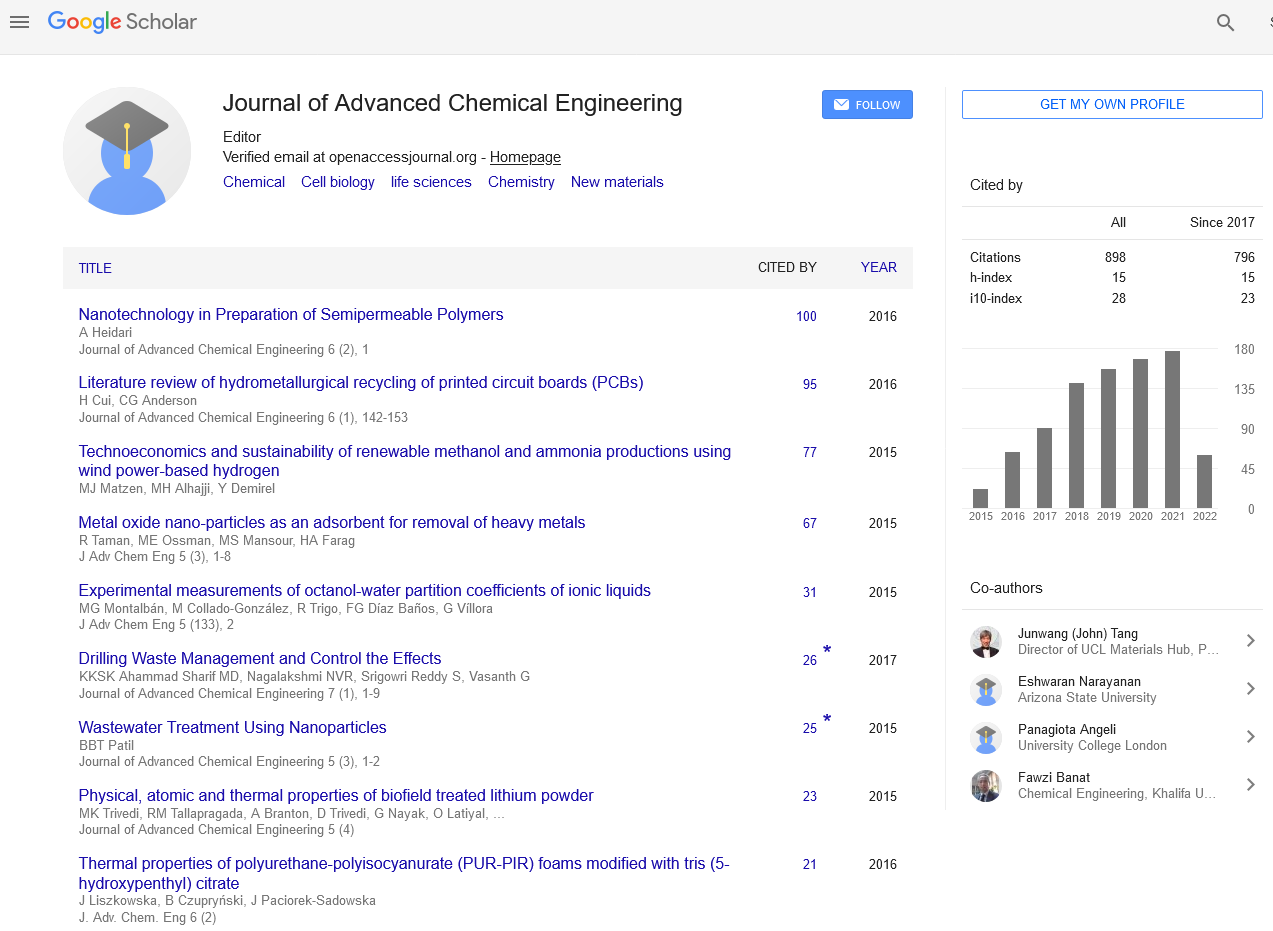Indexed In
- Open J Gate
- Genamics JournalSeek
- Smithers Rapra
- RefSeek
- Directory of Research Journal Indexing (DRJI)
- Hamdard University
- EBSCO A-Z
- OCLC- WorldCat
- Scholarsteer
- Publons
- Geneva Foundation for Medical Education and Research
- Google Scholar
Useful Links
Share This Page
Journal Flyer

Open Access Journals
- Agri and Aquaculture
- Biochemistry
- Bioinformatics & Systems Biology
- Business & Management
- Chemistry
- Clinical Sciences
- Engineering
- Food & Nutrition
- General Science
- Genetics & Molecular Biology
- Immunology & Microbiology
- Medical Sciences
- Neuroscience & Psychology
- Nursing & Health Care
- Pharmaceutical Sciences
Developing environment-sensitive molecular probes for target binding-activated fluorescence imaging
2nd World Congress on Biopolymers
August 04-05, 2016 Manchester, UK
Yi Pang
The University of Akron, USA
Keynote: J Adv Chem Eng
Abstract:
Recognition of specific biomolecules such as a unique proteins in biological cells is critical for basic biomedical research and the development of novel clinical diagnostics. Considerable interests exist in searching for the novel fluorescent probes that can target specific biological tissues/molecules to meet the need for advanced bioimaging. For in vivo tracking of a specific type of biomolecule or tissue, the probes are also required to be non-toxic, and their presence should not disturb the normal biological development process. In the presentation, we discuss a new class of fluorescent imaging dyes, which are typically non-fluorescent in an aqueous environment. The probes, however become highly fluorescent upon binding to biomolecules such as proteins. The binding-activated fluorescence on biomolecules can be further developed to give wash-free imaging reagents, as those free probes are nearly non-fluorescent in the surrounding aqueous environments. Further extending this concept has led to advanced imaging reagents, which selectively targets the biomolecules in the subunits of biological cells, e.g. organelles, to give fluorescence turn on.
Biography :
Yi Pang received his PhD in 1990 from Iowa State University, USA. He was a Post-doctoral fellow at US DOE Ames Laboratory during 1991-1993. He is currently a Professor at The University of Akron. He has published more than 135 research papers in reputed journals. His current research interests include synthesis of luminescent polymers, and development of fluorescent molecular probes for recognition of biologically important species.
Email: yp5@uakron.edu


